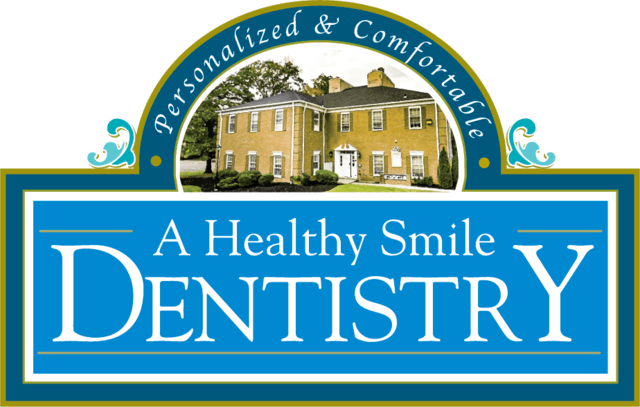As people age, maintaining oral health becomes increasingly vital. Adults over 50 face unique dental challenges that can impact overall health, confidence, and quality of life. Dental insurance plans offer crucial support, helping manage costs while ensuring access to essential treatments.
The Aging Mouth: Common Dental Challenges
Oral health naturally changes with age. Some of the most common issues adults over 50 encounter include:
- Tooth wear and enamel erosion: Years of chewing, acidic foods, and natural aging can thin enamel, increasing sensitivity.
- Gum disease: Gingivitis may progress to periodontitis, leading to tooth loss if untreated.
- Dry mouth (xerostomia): Often caused by medications, this condition raises the risk of decay and discomfort.
- Oral cancer risk: The risk increases with age, making regular screenings crucial.
- Tooth loss and replacement needs: Bridges, dentures, or implants may become necessary.
Dental insurance plans can significantly reduce the financial burden associated with these conditions while promoting timely care.
Financial Protection Against High Costs
Dental procedures can be expensive, especially complex treatments like implants or periodontal therapy. Adults over 50 often require more frequent care, making insurance an essential investment. Benefits include:
- Coverage for preventive care: Routine exams, cleanings, and X-rays are often included.
- Partial coverage for restorative procedures: Fillings, crowns, and root canals are generally partially covered, lowering out-of-pocket costs.
- Emergency care support: Unexpected dental emergencies can arise; insurance mitigates financial stress.
- Flexibility with treatment options: Many plans allow for choice among providers and procedures.
Having dental insurance plans in place ensures that cost does not prevent necessary treatment, preserving both health and confidence.
Preventive Care Is Key
Preventive dental care is especially crucial for adults over 50. Early detection and treatment of oral issues can prevent severe complications and save money in the long run. Key preventive strategies include:
- Regular dental check-ups: Twice-yearly visits help monitor oral health and catch problems early.
- Professional cleanings: Reduce plaque and tartar buildup, preventing cavities and gum disease.
- Fluoride treatments and sealants: Strengthen enamel and prevent decay.
- Oral cancer screenings: Early detection significantly improves outcomes.
- Education on home care: Proper brushing, flossing, and diet guidance reduce risks.
Dental insurance plans often cover preventive care at minimal or no cost, encouraging adults to maintain a routine.
Managing Chronic Conditions That Affect Oral Health
Adults over 50 are more likely to face chronic conditions that impact oral health, such as diabetes, heart disease, and osteoporosis. Dental insurance plans help:
- Monitor oral changes related to systemic conditions.
- Coordinate care between dental and medical professionals.
- Provide coverage for specialized procedures to manage complications.
This integrated approach helps maintain overall health and prevents dental issues from exacerbating other medical conditions.
Cosmetic and Functional Needs
Aging often brings cosmetic and functional dental concerns, including tooth discoloration, misalignment, or missing teeth. Dental insurance plans can provide support for procedures such as:
- Crowns and bridges
- Partial or full dentures
- Dental implants
- Teeth whitening and minor cosmetic corrections
Investing in dental insurance ensures that these procedures are more affordable and accessible, improving confidence and daily functionality.
Choosing the Right Plan
Selecting a suitable dental insurance plan requires careful consideration of several factors:
- Coverage range: Ensure preventive, basic, and major procedures are included.
- Annual maximums: Understand how much the plan covers each year.
- Network flexibility: Check if preferred dentists are included.
- Waiting periods: Some plans require waiting before coverage for major procedures.
- Premiums and out-of-pocket costs: Balance cost with benefits for optimal value.
A well-chosen plan reduces stress and ensures timely access to necessary dental care.
Long-Term Benefits
Dental insurance plans provide advantages beyond immediate cost savings:
- Maintains oral function: Regular care prevents tooth loss and chewing difficulties.
- Supports overall health: Proper oral hygiene lowers risks for heart disease, diabetes complications, and infections.
- Enhances quality of life: Healthy teeth contribute to clear speech, confident smiles, and enjoyable eating.
- Encourages routine care: Insurance coverage incentivizes regular check-ups and early intervention.
Investing in dental insurance is an investment in overall well-being, allowing adults to age gracefully while protecting oral health.
Practical Tips for Adults Over 50
- Schedule regular dental visits without delay.
- Prioritize preventive procedures covered by insurance.
- Discuss chronic conditions with your dentist to tailor care.
- Maintain a healthy diet low in sugar and acidic foods.
- Use appropriate dental hygiene tools, such as soft-bristle brushes and water flossers.
- Keep a record of dental treatments for insurance claims.
Conclusion
For adults over 50, dental insurance plans are more than a financial safety net—they are a key resource for maintaining health, function, and confidence. By reducing costs for preventive, restorative, and emergency procedures, insurance empowers individuals to take proactive steps in safeguarding oral health. Choosing the right plan ensures access to necessary treatments, supports long-term wellness, and allows a fulfilling, confident life without the burden of unexpected dental expenses.

